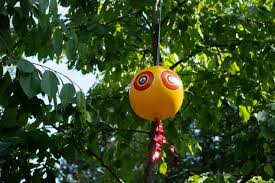SEASONAL BIRD DETERRENCE TIPS: PROTECT YOUR SPACE ALL YEAR ROUND!

SEASONAL BIRD DETERRENCE TIPS: PROTECT YOUR SPACE ALL YEAR ROUND!
SUMMARY
Bird behavior changes with the seasons, and your deterrence strategies should adapt accordingly. This guide offers tips on how to keep birds away during different seasons, ensuring year-round protection for your property.
FEATURES
- Spring Nesting Season: Prevent early nests with timely installations.
- Summer Protection: Use reflective deterrents and water-based solutions.
- Fall Migration: Reduce attraction by minimizing food and water sources.
- Winter Roosting: Block common roosting spots and use decoys.
- Year-Round Maintenance: Regularly clean bird deterrents for effectiveness.
- Adaptable Solutions: Opt for deterrents that can be adjusted seasonally.
DESCRIPTION
As bird activity changes with the seasons, so should your deterrence methods. In spring, for example, birds look for nesting sites, while in the fall, they gather in large groups to prepare for migration. Understanding these patterns can help you implement the most effective bird deterrence strategies throughout the year, protecting your property from damage and keeping birds at bay.
During spring nesting season, it’s crucial to be proactive. Birds will often scout for nesting sites in early spring, so it’s essential to have deterrents in place before they settle in. Install bird spikes or netting around common nesting areas like eaves, balconies, or sheds. If you wait until birds have already built nests, removing them becomes a much more delicate process, as many bird species are protected by law during nesting.
In summer, heat and light play a big role in bird activity. Reflective deterrents, such as shiny tape or reflective wind spinners, are highly effective in summer months when sunlight is abundant. These reflective surfaces disorient birds, preventing them from landing or perching. Additionally, consider installing motion-activated sprinklers in gardens or around outdoor seating areas. These sprinklers startle birds with sudden bursts of water, creating an environment that birds will want to avoid.
When fall migration approaches, many bird species will gather in large flocks. To reduce the appeal of your property during this time, minimize any easily accessible food sources. Clean up fallen fruit from trees, secure trash bins, and remove bird feeders if possible. Another effective strategy during migration is to reduce water availability, as birds often seek out reliable water sources during their long journeys.
In winter, birds often seek sheltered roosting spots to escape the cold. Blocking access to common roosting areas, such as attic vents, chimneys, and garages, will prevent birds from settling in. Additionally, placing predator decoys like owls or hawks around your property can scare away birds seeking shelter. Winter is also a great time to install bird netting or other long-term deterrents, as birds are less active and less likely to challenge these barriers.
One of the most important aspects of bird deterrence is year-round maintenance. Regularly check and clean your deterrents to ensure they remain effective. Reflective surfaces can lose their luster over time, and decoys may need to be repositioned to keep birds from becoming accustomed to them. Consistent upkeep will help you maintain a bird-free environment throughout the year.
Finally, consider investing in adaptable solutions that can be easily adjusted for each season. Some deterrents, like bird spikes, are effective year-round, while others, such as reflective objects or sprinklers, can be more seasonal. By choosing flexible options, you can easily modify your bird deterrence strategy as the seasons change.
By adapting your bird deterrence methods to seasonal bird behaviors, you can ensure that your property remains protected all year long. Whether it's deterring nesting in the spring or preventing roosting in the winter, these tips will help you stay ahead of bird activity no matter the season.
- Tags: Bird Control Guide
- Maanas Mehta


Comments 0